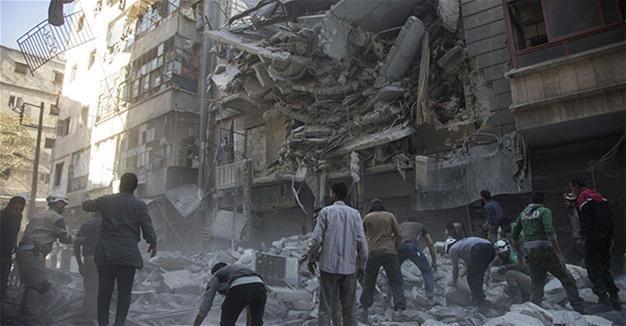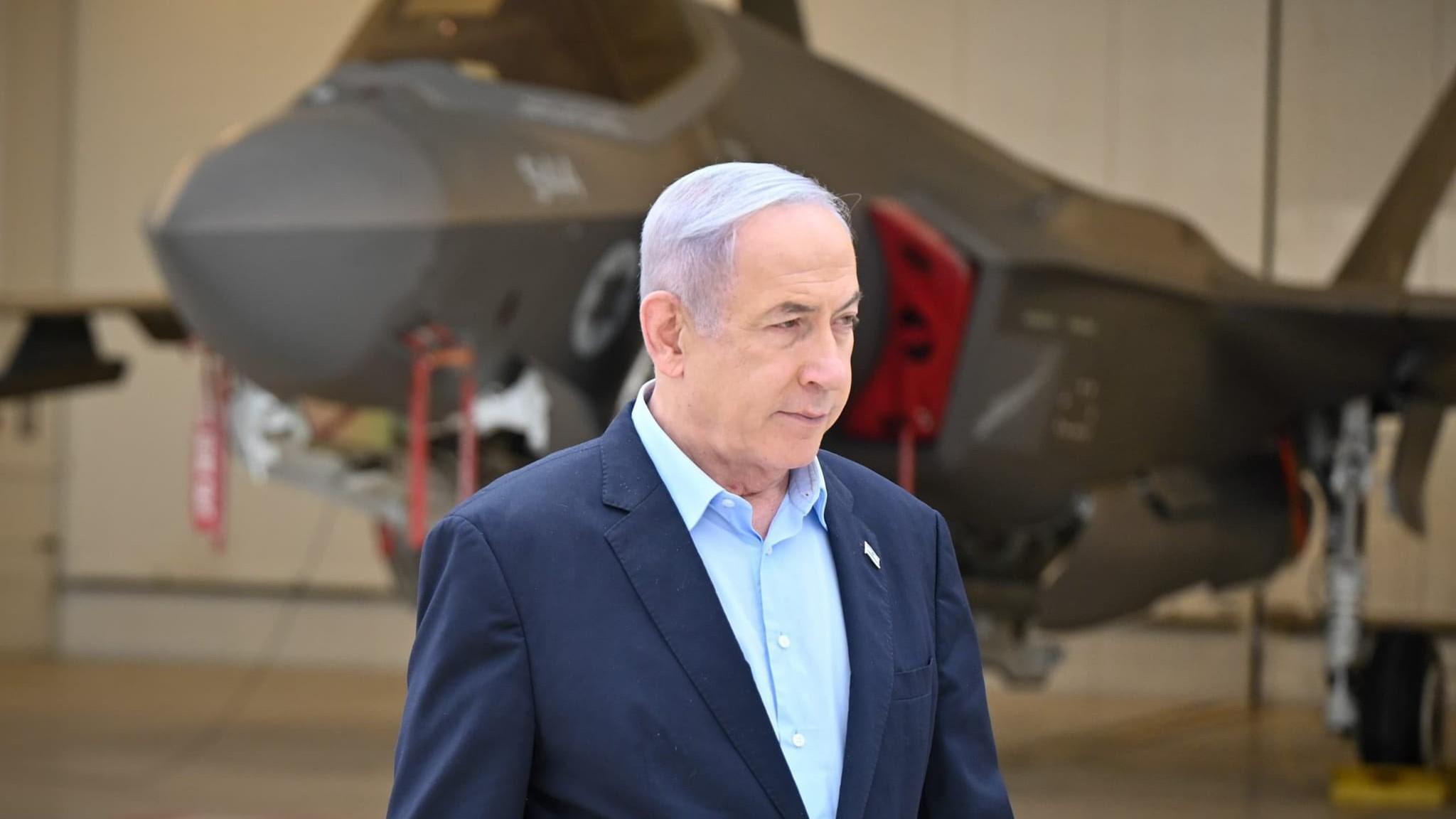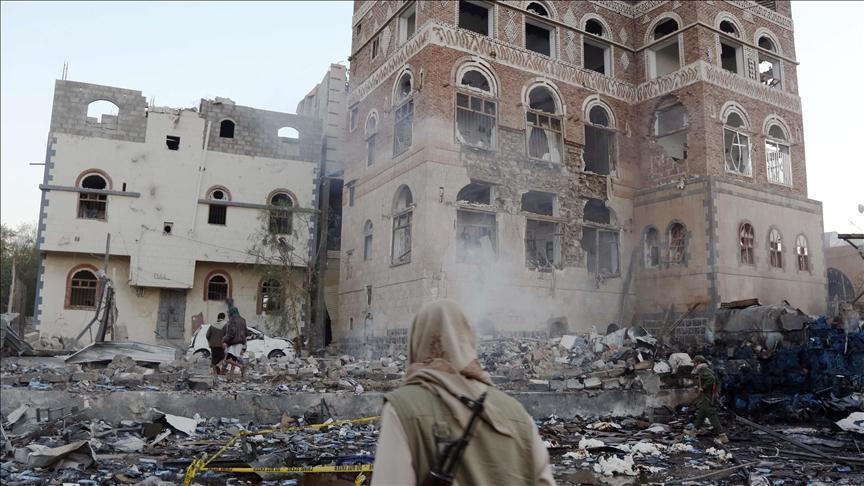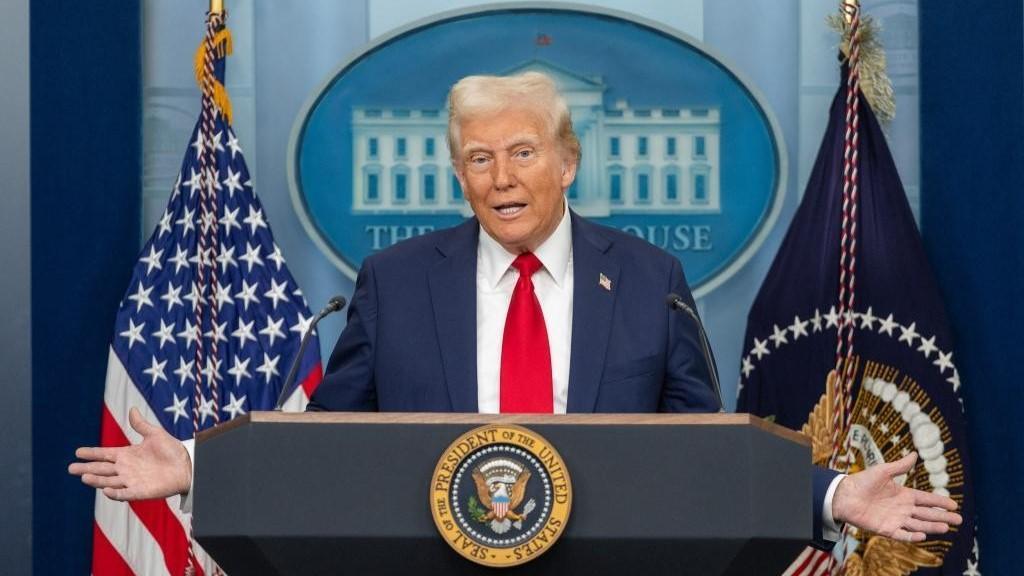Russia-backed Syria army advances to retake Aleppo
BEIRUT

Syrian civilians and rescuers gather at site of government forces air strikes in the rebel held neighbourhood of Al-Shaar in Aleppo on September 27, 2016. AFP photo
Syrian government forces and their allies attacked the opposition-held sector of Aleppo on several fronts on Sept. 27, the biggest ground assault yet in a massive new military campaign that has destroyed a U.S.-backed cease-fire.The Sept. 27 assault saw pro-government forces, which include the Syrian army and allied militia from Iran, Iraq and Lebanon, attempt to attack Aleppo’s Old City near its historic citadel, as well as around several of the city’s major access points.
Troops advanced from the countryside to the north and south, rebels said, leading to intense clashes. The military and the Syrian Observatory for Human Rights, a Britain-based war monitoring group, said the army had made some gains, but this was disputed by rebels who said they had held them off.
Senior combatants on both sides said pro-government forces were massing in several parts of Aleppo, Syria’s biggest city before the war, now divided into a western zone held by the army and a smaller, besieged area held by rebels.
The commander of an Iraqi Shiite militia fighting in support of Syrian President Bashar al-Assad told Reuters a large force spearheaded by the army’s elite “Nimr,” or Tiger, forces had started to move in armored vehicles and tanks for an attack on rebel-held areas.
Quelling the uprising in the city would give Assad his biggest victory yet of the war and deliver a powerful blow to his enemies.
The United States says the assault on Aleppo is proof that al-Assad and his Russian and regional allies have abandoned an international peace process to pursue victory on the battlefield after nearly six years of civil war.
Washington, which agreed a cease-fire with Russia this month that collapsed after a week, says Moscow and Damascus are guilty of “barbarism” and war crimes for targeting civilians, health workers and aid deliveries in air strikes.
More than 250,000 civilians are believed to be trapped inside the besieged rebel-held sector of Aleppo, where intensive bombing over the past week has killed hundreds of people, many trapped under buildings brought down by bunker-busting bombs. Only about 30 doctors are left inside, coping with hundreds of wounded each day who are being treated on the floors of hospitals that are bereft of supplies.
The World Health Organization called for the “immediate establishment of humanitarian routes to evacuate sick and wounded” from the besieged eastern part of the city.
It is far from clear whether an all-out attempt to storm the rebel-held area of Aleppo is planned soon: that would require a massive assault by the army, backed by Lebanese and Iraqi Shiite militias, Iran’s Revolutionary Guards and Russian air power.
The government’s strategy in other locations such as Damascus and Homs has been to use years of siege and bombardment to force eventual surrender, rather than attempting to storm well-defended territory.
However, al-Assad’s allies now openly say they have abandoned the peace process and are betting instead on military victory.
“There are no prospects for political solutions ... the final word is for the battlefield,” the leader of Lebanon’s Hezbollah Shiite movement, Sayyed Hassan Nasrallah, was quoted in a Lebanese newspaper as saying on Sept. 27.
The head of Iran’s National Security Council, Ali Shamkhani, was quoted on Sept. 27 as saying Aleppo’s fate would be determined only “through a forceful confrontation.”
Gulf may arm rebels now Syria truce is dead, say US officials
Meanwhile, U.S. officials said on Sept. 26 that the collapse of the latest Syria cease-fire has heightened the possibility that Gulf states might arm Syrian rebels with shoulder-fired missiles to defend themselves against Syrian and Russian warplanes, U.S. officials said on Monday.
Still, the U.S. administration continues to maintain that negotiations are the only way to end the carnage after Russian-backed Syrian forces intensified their bombing of Aleppo, the last major urban area in rebel hands.
One consequence of the latest diplomatic failure may be that Gulf Arab states or Turkey could step up arms supplies to rebel factions, including shoulder-fired anti-aircraft missiles, something the United States has largely prevented until now.
One U.S. official, speaking on the condition of anonymity to discuss American policy, said Washington has kept large numbers of such man-portable air defense systems, or MANPADS, out of Syria by uniting Western and Arab allies behind channeling training and infantry weapons to moderate opposition groups while it pursued talks with Moscow.
But frustration with Washington has intensified, raising the possibility that Gulf allies or Turkey will no longer continue to follow the U.S. lead or will turn a blind eye to wealthy individuals looking to supply MANPADS to opposition groups.
“The Saudis have always thought that the way to get the Russians to back off is what worked in Afghanistan 30 years ago – negating their air power by giving MANPADS to the mujahideen,” said a second U.S. official.
“So far, we’ve been able to convince them that the risks of that are much higher today because we’re not dealing with a Soviet Union in retreat, but a Russian leader who’s bent on rebuilding Russian power and less likely to flinch,” this official said, referring to Russian President Vladimir Putin.
Asked if the United States was willing to do anything beyond negotiations to try to stop the violence, U.S. State Department spokesman Mark Toner did not outline other steps, but stressed that Washington does not want to see anyone pouring more weapons into the conflict.
“What you would have as a result is just an escalation in what is already horrific fighting,” Toner said. “Things could go from bad to much worse.”
















